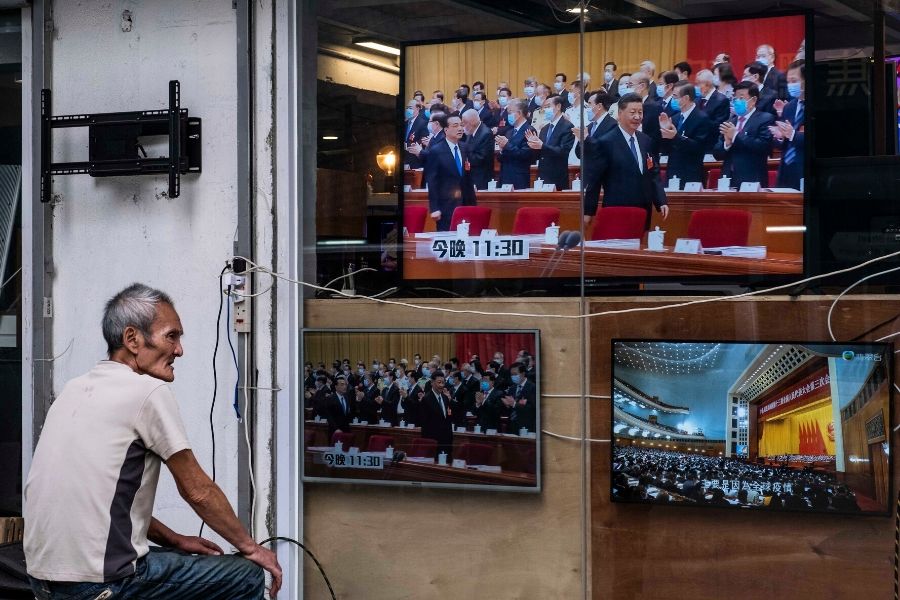
China moves to tighten its control of Hong Kong
The proposal revives the threat of violent demonstrations that convulsed the city for months
 A man watches a TV news program in Hong Kong, Friday, May 22, 2020. Televisions in Hong Kong showed reports about Beijing’s plans to impose national security legislation. (Lam Yik Fei/The New York Times)
A man watches a TV news program in Hong Kong, Friday, May 22, 2020. Televisions in Hong Kong showed reports about Beijing’s plans to impose national security legislation. (Lam Yik Fei/The New York Times)
BEIJING — China signaled Thursday it would move forward with laws that would take aim at anti-government protests and other dissent in Hong Kong. It is the clearest message yet that the Communist Party is moving to undermine the civil liberties the semi-autonomous territory has known since the 1997 British handoff.
The proposal to enact new security laws affecting Hong Kong was announced before the annual meeting of China’s legislature, which is expected to approve a broad outline of the plan. While specifics of the proposal were not immediately disclosed, the rules could be harsher than anything Hong Kong’s pro-Beijing government has done to curb opposition to the mainland.
The freedoms that have distinguished Hong Kong from the mainland, like an unfettered judiciary and freedom of assembly, have helped the former British colony prosper as a global city of commerce and capital. But the proposal raised the possibility that the Beijing government would damage the “one country, two systems” policy that has ensured such liberties since the territory was reclaimed by China.
The plan also revives the threat of violent demonstrations that convulsed the city for months.
In the Communist Party’s view, tightened security laws in Hong Kong are necessary to protect China from external forces determined to impinge on its sovereignty. The legislation would give Beijing power to counter the Hong Kong protests, which are seen as a blatant challenge to the party and China’s leader, Xi Jinping.
©2019 New York Times News Service




